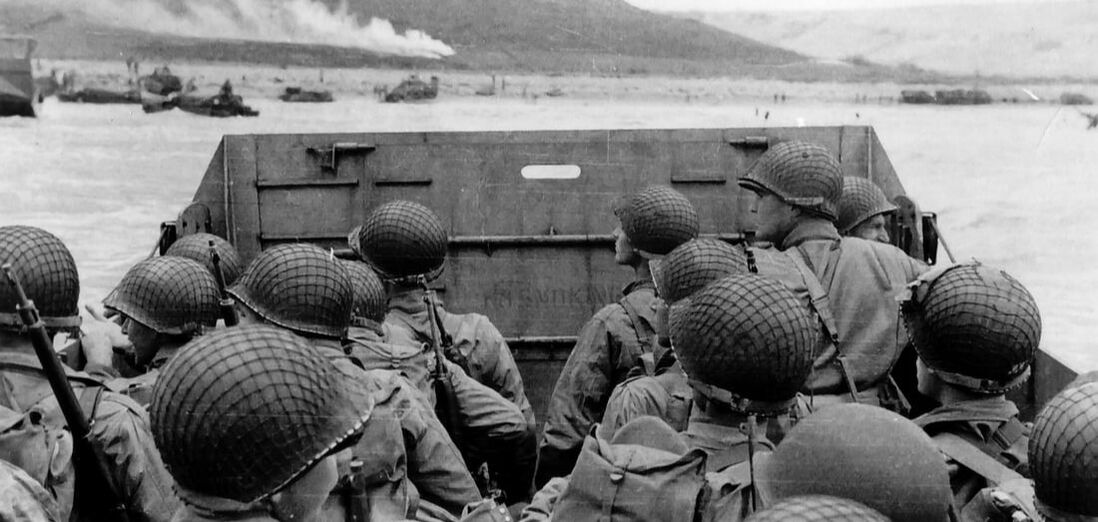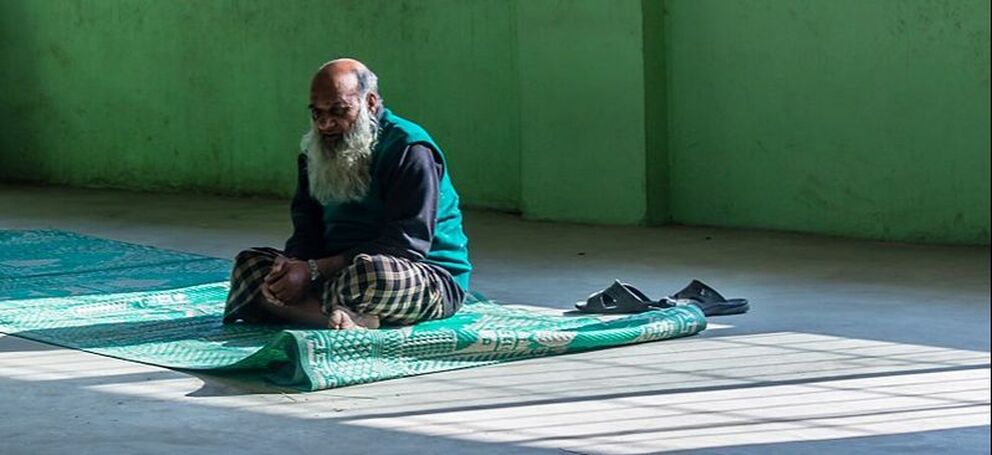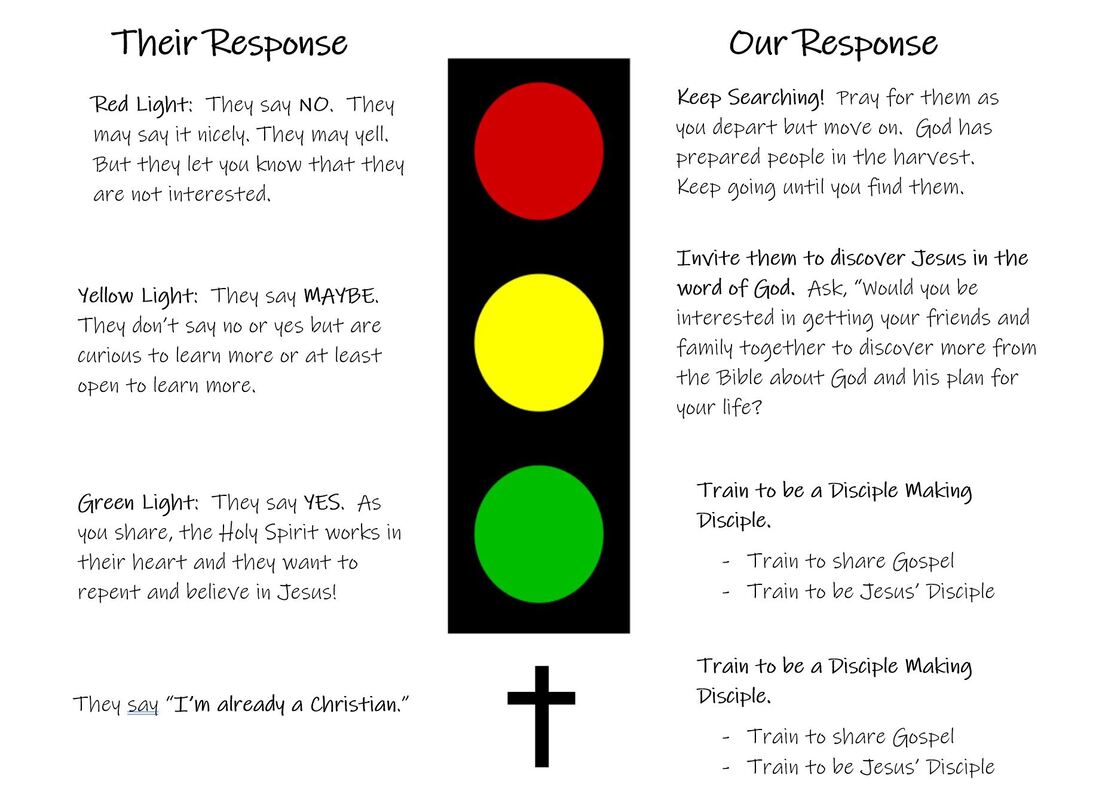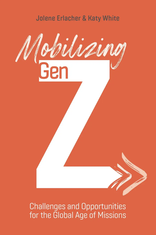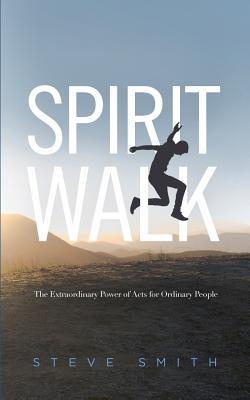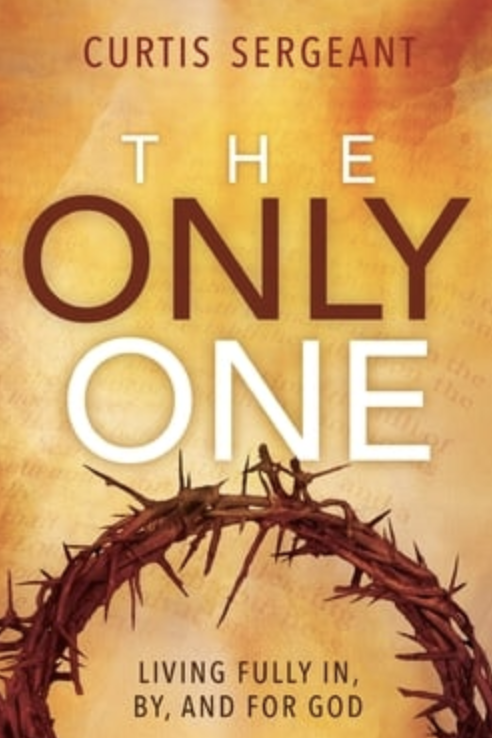|
It was a cold day in January of 1942. My then seventeen year old grandfather had cut class and walked down to the local draft office of his small Michigan town. With resolve and determination he walked in and requested to volunteer with the army. There was a war going on - the Pearl Harbor attack was still fresh in the minds of the country - and my grandfather wanted to do his part to end it. The gentleman behind the desk wisely sent my grandfather back to school with instructions to return after graduation in May. He did that and by early June had joined a mass of other young men at boot camp in Southern California. There he was trained as a soldier first and then as a radio operator, learning morse code and radio maintenance. He was part of the United States Army and the following fall would sail to Europe where he would be part of the liberation of France and the Buchenwald Concentration camp and of the ending of the war. My grandfather had taken his place in the story of World War 2. He had risked his life for a cause that was bigger than himself. He had joined millions of young men who felt that this war was worth any sacrifice. But it wasn’t just the young men who thought this war was worth any sacrifice. My grandmother was then sixteen, still in high school, still living at home. She and her family saw the need to sacrifice for the war effort as well. They spent their hard earned money to buy war bonds and they willingly accepted the rationing system on gasoline, coffee, sugar and other foods. She told of the day that her entire school skipped classes and drove throughout the county in large farm trucks to collect any scrap metal they could find. As they drove back into town after a hard days work, they came upon the owner of the bank. He was drenched in sweat, cutting his wrought iron fence down with a hack saw. There was a war going on and they were going to do their part to win it. Everyone had a part to play. Everyone had a sacrifice to make. Everyone had taken their place in the story. History looks back on that generation and remembers them as the greatest generation. They lived with a wartime mentality. They did not ask what they wanted or what made them happy. They simply asked what they could do to help win the war. I am forty six and my generation is often known as the “me” generation. For the most part my generation has focused on how we can be happy, on what brings us fulfillment, on how we can live the life that we want to live. World War 2 was a result of the brokenness of man and the tyranny of Satan. He is a thief who has come to lie, kill and destroy. Today there is a war going on that is cosmic in proportion and the consequences are eternal. Well over 5 billion people on earth, if asked, would say that they are not Christians. Their destination is an eternity separated from God in hell if something does not change. Over 2 billion in our world have never even had an opportunity to hear the gospel. Many of them are Muslims, trapped in a religious system that tells them that they have to earn their way to heaven. There is a war going on. It involves billions more souls than World War 2 and for all of them, eternity is at stake. There is a role for every follower of Christ in this story. Some will be soldiers on the front lines. Many more will stay home and do their part from there. But they will all be part of this greatest story. For Christians it is a question of legacies. Which legacy will we step into? Will we look at the redemptive story of scripture, at the Father’s heart and the brutal facts of lostness and decide that there is no sacrifice too great to be a part of that story? Will our legacy be like that of the greatest generation or of the me generation?
0 Comments
God loves Muslims. He really does. He came to earth as a baby, lived a perfect life and went to the cross because he loves Muslims and he desires both relationship with them and worship from them. It's what he desires for all of us. He loves them so much that he has begun to do an amazing work in the Muslim world. More Muslims have come to faith in Christ in the last fifteen years than in the previous 1,400 years combined! God is on the move in the Muslim world. And yet. Of the 1.8 billion Muslims in the world, the percentage who have come to faith is still extremely small. Even if the number were tens of millions, in order to reach 10% of the world’s Muslim population, there would need to be 180 million Muslims come to faith in Christ. There is still so much work to be done! And here is the challenge. The vast majority of Muslims in our world today live in places where there is little to no gospel witness. Turkey for example is a nation of over 80 million people and the number of Muslims who have come to faith in Christ is less than 10,000. Of the country’s 81 provinces, 18 of them have no established church. The vast majority of Muslims in Turkey will live and die without ever meeting a true follower of Jesus or having an opportunity to respond to the gospel. The story repeats itself across the Muslim world.
This list represents nearly half a billion people in just twelve of the largest Muslim people groups. These twelve people groups are just one quarter of the world’s 1.8 billion Muslims, most of whom live within the 10/40 window, the region of the earth between 10 and 40 degrees north of the equator in the eastern hemisphere. Are Muslims hard to reach? Are they resistant to the gospel? The reality is that we don’t know because the global church sends so few missionaries to the Muslim world - just one missionary for every 405,500 Muslims in 2015. The only thing we know for certain is that vast majority of Muslims across the globe have never had a chance to respond to the good news of Jesus Christ. As Scripture says, “Anyone who believes in him will never be put to shame.” For there is no difference between Jew and Gentile—the same Lord is Lord of all and richly blesses all who call on him, for, “Everyone who calls on the name of the Lord will be saved.” How, then, can they call on the one they have not believed in? And how can they believe in the one of whom they have not heard? And how can they hear without someone preaching to them? And how can anyone preach unless they are sent? As it is written: “How beautiful are the feet of those who bring good news." - Romans 10:11-15 What can you do this week to ensure that more Muslims have an opportunity to respond to the gospel and be connected to a true follower of Christ? Here are a few ideas: As you begin to share the gospel regularly with friends, family and strangers, there are several predictable responses you will receive to your efforts. Three of these responses can be seen in scripture. Let’s look at Acts 17:32-34. They heard Paul talk about the dead being raised. Some of them made fun of this idea. But others said, “We want to hear you speak about this again.” So Paul left the meeting of the Areopagus. Some of the people became followers of Paul and believed in Jesus. While Paul has just finished sharing with a large group of intellectuals, politicians and philosophers in Athens, the response that the message receives will be much the same regardless of the audience. Some mocked. Some wanted to learn more. Some repented and believed. There is a fourth response that you might also run into - you’ll share with someone who already is a follower of Jesus. Outside of that, not much has changed in the 2,000 years since Paul shared in the Areopagus. The responses Paul got in Acts 17 are the same sorts of responses that we will get when we share the gospel today. If we get out into the harvest and share the gospel abundantly, some will reject the message, some will be curious to learn more and some will repent and believe - Jesus said that the harvest was plentiful after all. That the harvest is plentiful was and is a statement of fact. The Stoplight Tool A helpful way to think about these four response is to think about a stop light with its red, yellow and green lights. This is a tool that comes out of the No Place Left Coalition and is helpfully articulated by Troy Cooper in the video below. A red light is when the person you are trying to connect with simply says no. They may say it with a door closed in your face. They may yell at you. Most often they politely let you know that they aren’t interested in where the conversation is going. Of the hundreds of doors I have knocked on to offer prayer and look for opportunities to share the gospel, I have never been yelled at, never been beaten up and, as of yet, I’ve never been stabbed. Most red lights have been pretty gentle. They have been red, but they have been civil. A yellow light is when you begin to share with someone who is interested. Something you’ve said or done has struck a chord. They recognize some need they have but they just aren’t sure or they’re just not ready to jump into giving Jesus lordship over their lives. They often welcome prayer and are encouraged by scripture and if you ask, they’ll be more than willing to have you stop back by again. They haven’t said yes to Jesus, but they haven’t said no either. A green light is when God leads you to someone who He has prepared to hear the gospel. In John 6:44 Jesus tells his disciples that no one comes to me unless the Father who sent me draws him. This person has been drawn by God to Jesus and when you share the gospel with them, they say yes. The final person you’ll run into as you share the gospel is the follower of Jesus. They are already a Christian and are trusting in Jesus for their salvation. Our Response While it is helpful to understand the four main responses to a gospel presentation, what is more helpful is to know how we can respond to those responses. Red Light Response So the person you are talking with makes it known that they really aren’t interested in hearing about the good news of Jesus. They shut the conversation down. They close the door. Move on. Say a prayer of blessing as you leave, and move on. The God prepared person is out there and so we keep moving, keep proclaiming, keep offering prayers, keep searching for the person who God is calling to Jesus. If this is a person from your relational network - a family member, friend, neighbor or co-worker - then you begin to pray every day for them and you wait for the Holy Spirit to move. As much as you might want to “shake the dust from your shoes”, God has placed you in their lives for a reason and your only response can be patient, persevering love and prayer. Yellow Light Response Most of the people you interact with will most likely exhibit yellow light responses. They won’t say no. They have some interest - perhaps in the message, perhaps just in you. And so if you’ve ministered to someone in prayer and in sharing the gospel, ask if you can stop back by their house in a week to visit some more. You may ask them if they would be willing to get their friends and family together to discover what the Bible has to say about living a life of purpose, peace and joy. I rarely ask anyone to come to church. Most won’t. But many are open to studying the Bible in their own homes. Start a discovery Bible study using a series of stories that leads them from Creation to Christ or perhaps helps them discover Jesus in the scriptures. Most of our new far from God friends have not rejected Jesus. They’ve rejected an idea they have created in their minds about what a Christian is. Most of us would reject that idea too! By taking them to the stories of Jesus we allow them to discover Jesus for themselves. Discovery Bible Study allows you to do this and is a great way to respond to our yellow light friends. Green Light Response Sometimes we’ll begin sharing and discover that the person is immediately ready to put their faith in Jesus. It’s as if they’ve been waiting for someone to share with them! [Watch an Example] If you have the privilege and joy to be used by God to help someone step into a new life in Christ your job is to immediately begin to train them to be a disciple of Jesus. First train them how to share with their friends and family. Then set a regular time to begin to walk with them through a short term discipleship plan. If they are ready and you have freedom, baptize them immediately like we see in scripture. It is your job to help them become a disciple who has the tools to grow into maturity and to help others do the same. I’m A Christian When you find yourself sharing with someone who is a Christian, take them to Matthew 28:18-20 to cast vision for disciple making and then invite them into the harvest. First train them how to share with their friends and family. Then set a regular time to begin to walk with them through a short term discipleship plan so that they will be able to walk those they lead to faith through the same plan. These are the four responses we’ll see as we share the gospel and the four ways in which we can respond. Now get out into the harvest and put this tool into practice. Growing up in a small, rural Texas town, Chris Clayman’s journey to West Africa and then to one of the worlds largest and most diverse cities may be surprising to some. But in light of God’s superplan, it makes perfect sense. Clayman is the Co-Founder and an Associate Director of Global Gates, a mission organization focused on reaching the ends of the earth through global gateway cities. Superplan: A Journey into God’s Story is Clayman’s telling of his unexpected journey into the superplan of God. It is a book filled with encouragement and challenges readers to step into risk taking obedience to Jesus. “Superplan” is a term a Bangladeshi brother in New York City coined in thinking about his own story and after hearing the of the circuitous journey on which God took Chris to bring him to Harlem where he regularly shares the love of Jesus with the very West African Muslims he had hoped to reach when he originally moved across the ocean. "God’s Superplan is the redemptive story of God, rooted in eternity, recorded in the Bible, and realized even today. God’s Superplan transcends our strengths and weaknesses, victories and sufferings, ideas and efforts. In dramatic ways, God is drawing people into knowledge and love of him from all peoples and areas of the world. This redemptive story is one God does not keep to himself. Instead, he beckons us to leave our mundane, small plans to join him in his Grand Narrative." - Chris Clayman Part memoir, part biography of former Muslims, part missiological treaties, Superplan is an excellent book. The book is also a lens into ministry among diaspora peoples in North America and is therefore both an instructive and helpful resource for anyone wanting to share the love of Jesus with immigrants and refugees. Superplan is a vivid example that modern missions is truly everywhere to everywhere. Buy Your Copy |
The E2E Community
Categories
All
Good Books
Archives
April 2024
|
Proudly powered by Weebly

